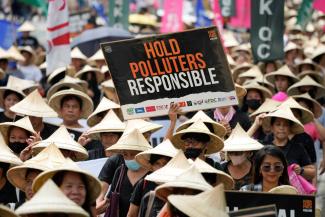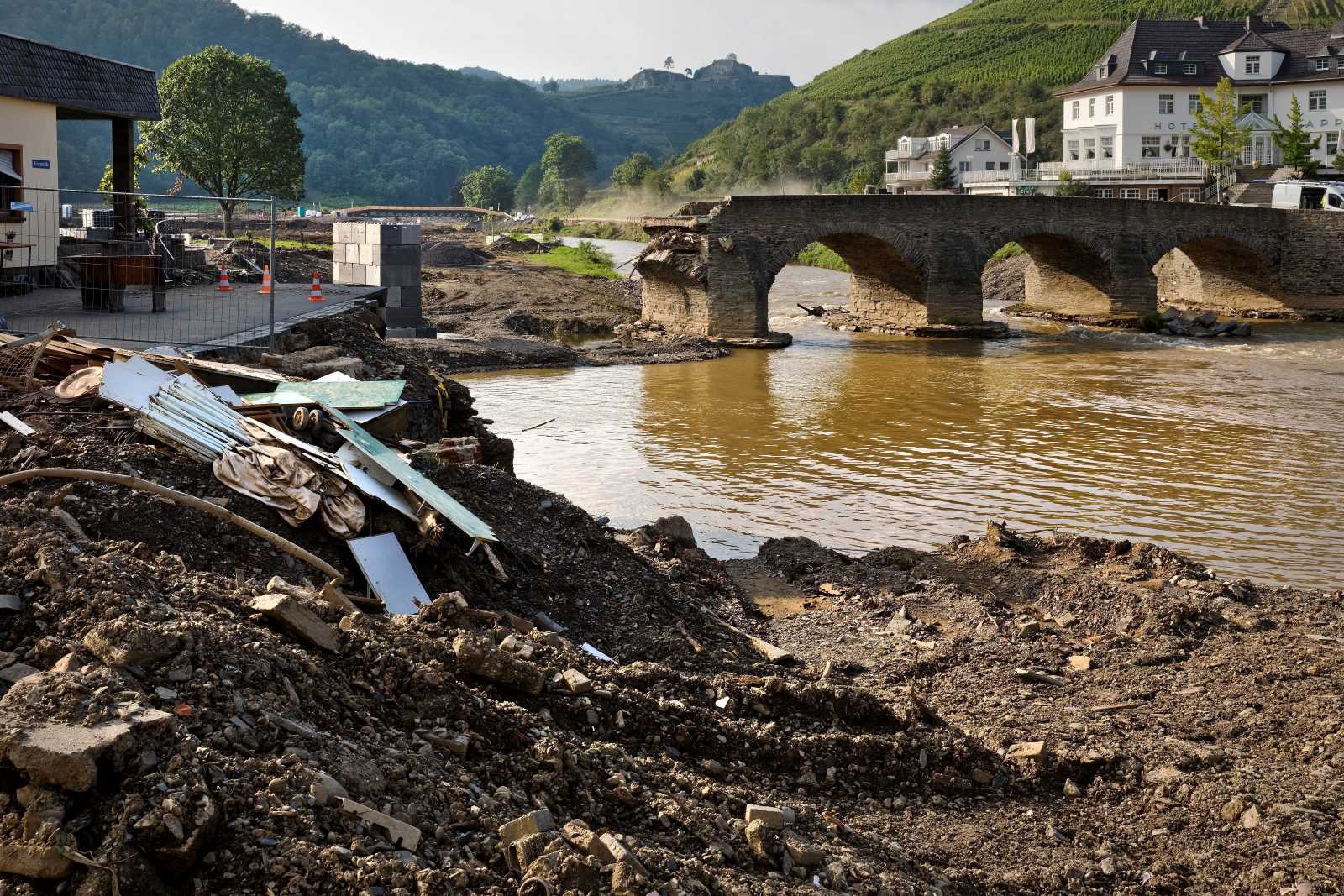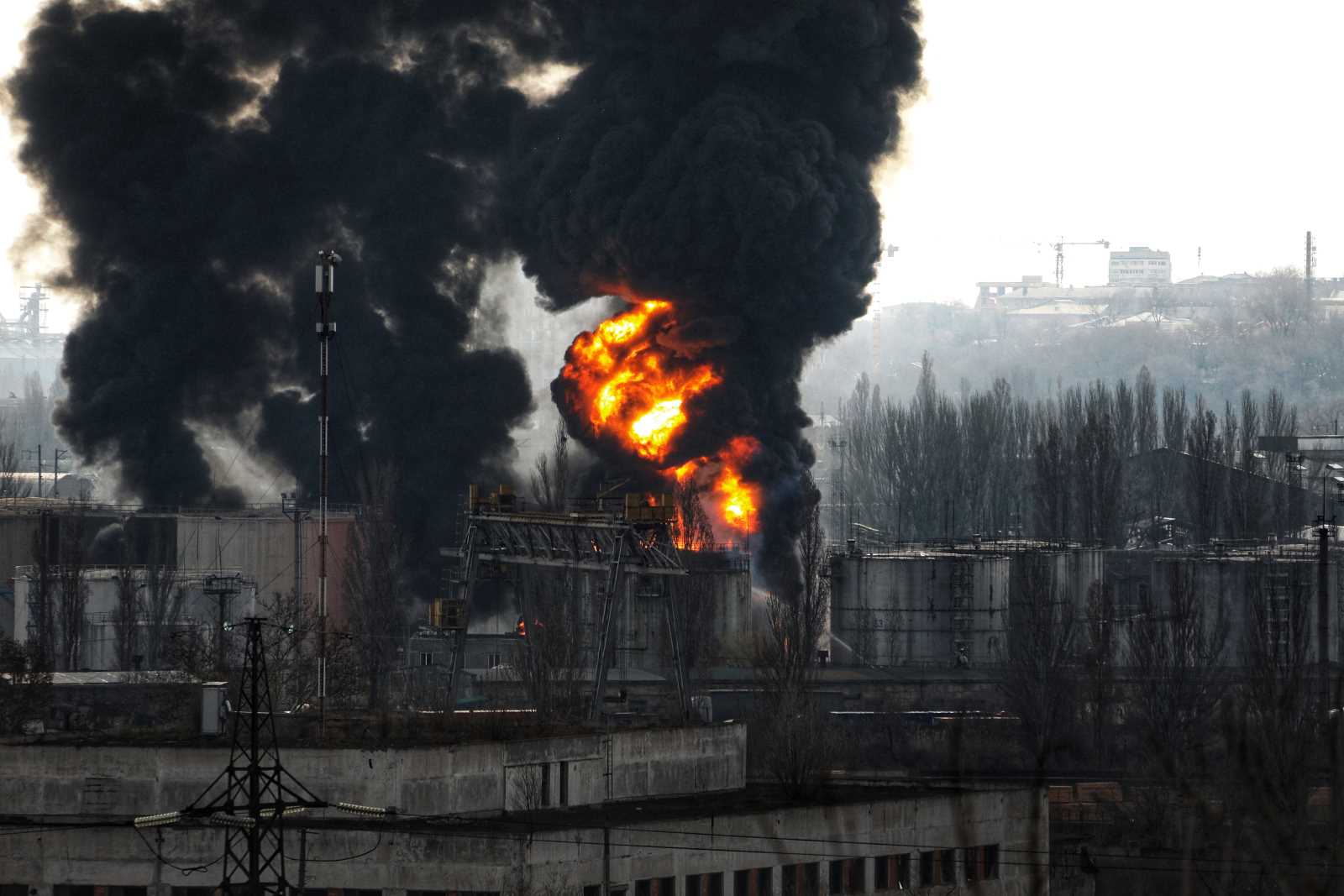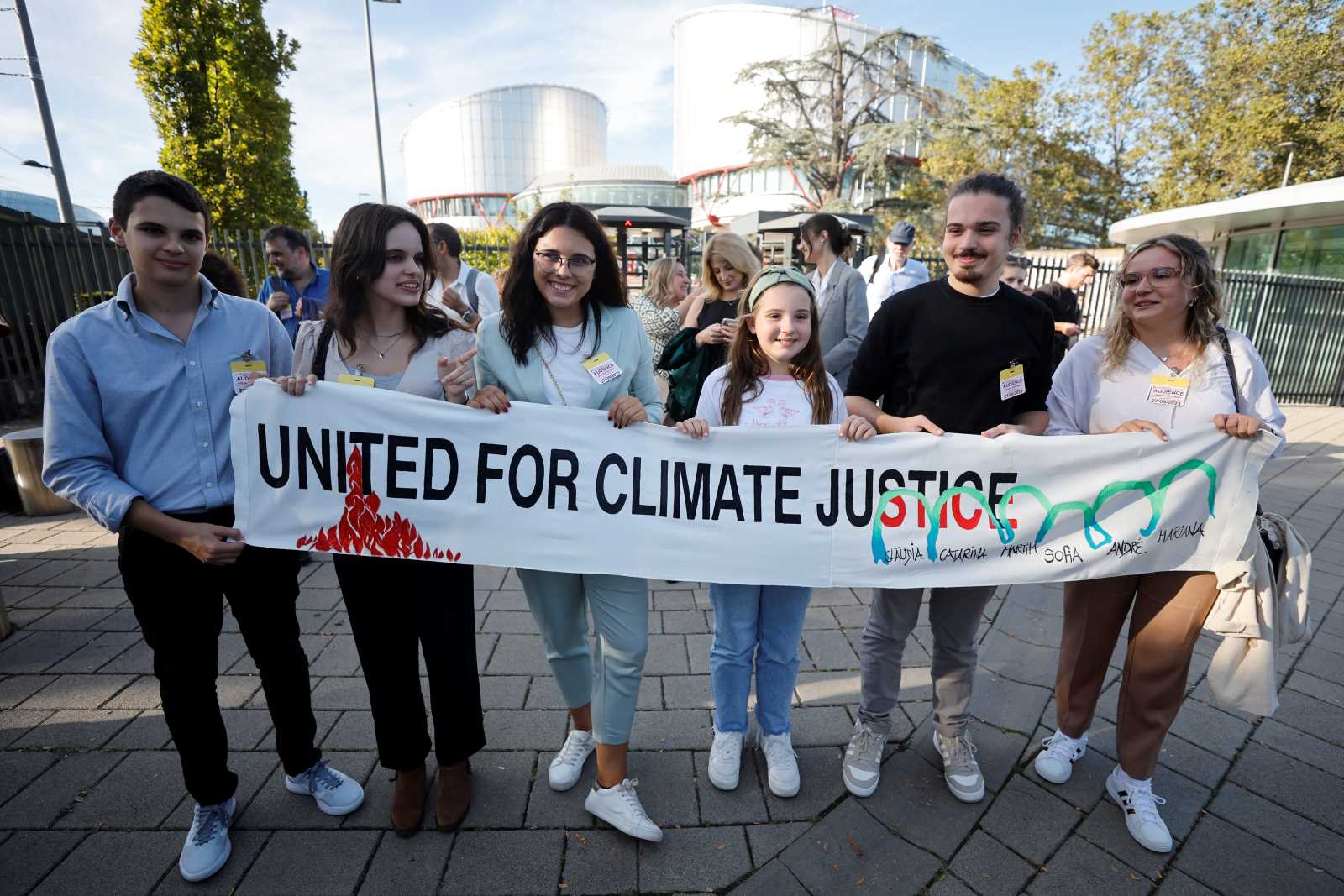Our View
On the edge

Since June 2023, every single month has been the hottest of its sort on record, some of them by a large margin. At the same time, the atmosphere’s carbon concentration is still growing as greenhouse gas emissions keep increasing. We recently breached a limit of great symbolical relevance: for the entire 12 months from February 2023 to January 2024, global temperatures were on average 1.5° Celsius above the preindustrial level.
This does not mean that the goal of the Paris agreement, which is to keep global heating below the 1.5° threshold long term, is no longer achievable. Temperatures may yet drop again. Climate trends are measured in decades, not months.
Business as usual, however, would mean that the 1.5° goal will be missed long term. This outlook may feel quite discouraging. Ambitious climate goals make sense, but they imply a risk of undermining confidence when they are not reached. Nonetheless, we need better climate protection in order to limit global heating to the extent possible and prevent the worst catastrophes. Every 10th of a degree matters. 1.6° is safer than 1.7°, and 1.7° is safer than 1.8°.
Extreme weather events mark our time. According to Save the Children, an international non-governmental organisation, climate-induced floods, storms, wildfires and landslides killed at least 12,000 people last year. More than half lived in countries with low and lower middle incomes.
Unless climate protection improves fast, extreme weather will get worse. The hotter Earth becomes, moreover, the more likely we become to reach tipping points, after which important systems change irreversibly for a long time. Even at current temperatures, some systems may collapse, according to the Global Tipping Points Report. Examples include the Greenland and West Antarctic ice sheets, warm-water coral reefs and permafrost regions. The impacts would be catastrophic. The Atlantic meridional overturning circulation (AMOC) has already weakened. Its end would mean colder temperatures in Europe, but even hotter temperatures in poorer world regions.
Our planet is quite complex. It is impossible to precisely predict tipping points and their impacts. Since we do not understand these risks well, we must urgently limit them. It is essential to reduce carbon emissions. Policymakers must set the conditions for the transition to a climate-compatible economy, ensuring a just transition and communicating clearly why some uncomfortable changes are necessary.
Subsidies for fossil fuels are absurd, for example. Nonetheless, however, influential political forces in both Germany and France currently want farmers to keep benefiting from such subsidies. That would not reduce emissions but send the dangerous message that things can keep going on as usual.
At both national and international levels, we need more cooperation and less polarisation. Wars like the ones in Ukraine and Gaza are not only devastating in humanitarian, political and economic terms. They also devour resources and attention needed for climate protection.
On the upside, many people around the world want to take action for better climate protection. Solar and wind power are becoming increasingly more important. Lawcourts, moreover, are forcing governments and private-sector companies to assume climate responsibility. Efforts to keep the planet liveable must not ease off. And that is true even if the 1.5° goal proves unachievable long term.
Jörg Döbereiner belongs to D+C/E+Z’s editorial team.
euz.editor@dandc.eu















